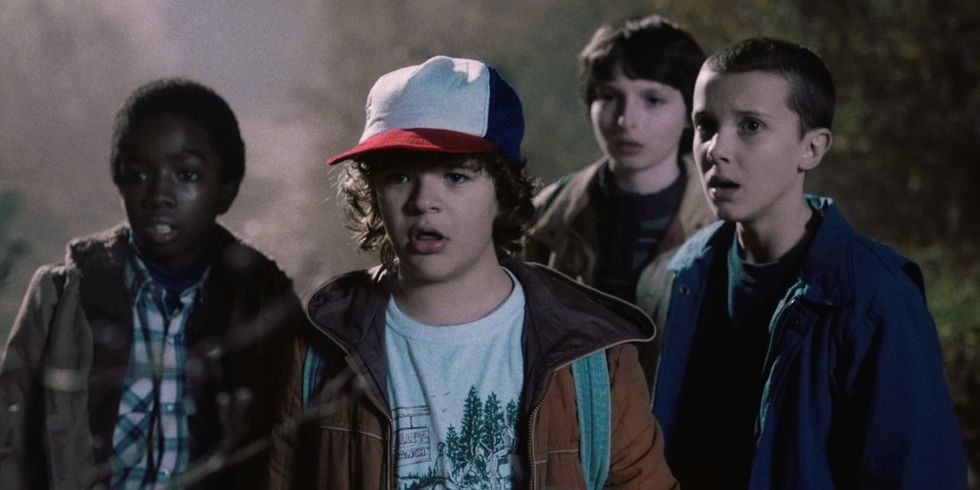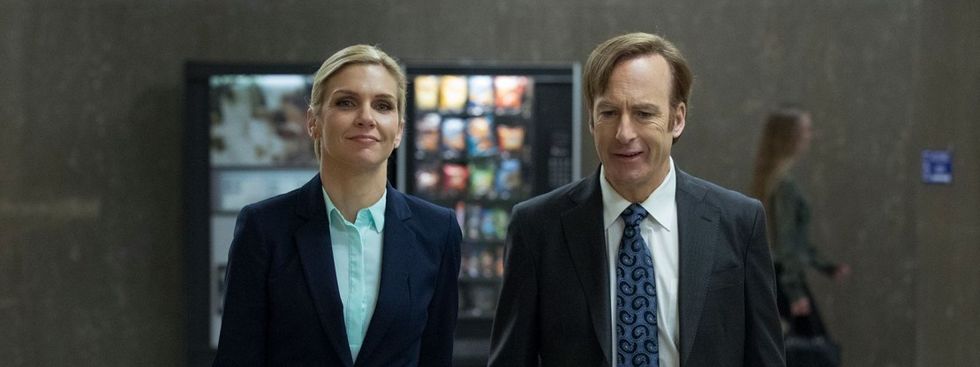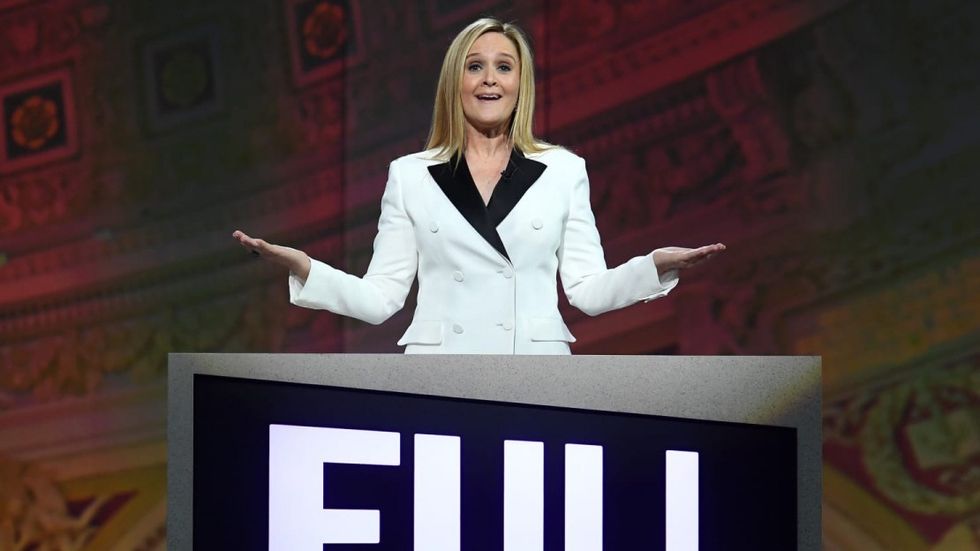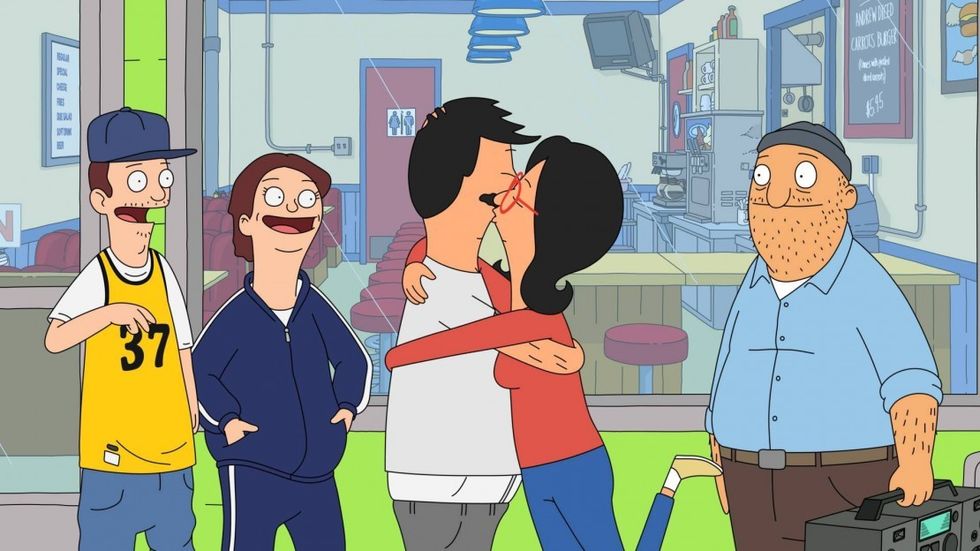4 Tips From Emmy-Nominated Writers on How to Break Into Hollywood
Though it can be hard to imagine sometimes, even Emmy-nominated writers had to find their start somehow.

On Friday evening, Emmy weekend was in full swing, and a host of Emmy-nominated and Emmy-winning writers gathered at the Writer’s Guild Theater in Beverly Hills, where they participated in a panel offering insight into the many different strategies they parlayed to turn themselves into some of the year’s breakout writers.
Moderating the panel was Larry Wilmore, former host of The Nightly Show with Larry Wilmore, and current co-creator of the HBO hit series Insecure, who brought the group of mostly up-and-coming writers to life with a vibrant discussion about breaking into the industry and swimming to the top of the talent pool. Partaking as members of the Sublime Primetime panel were Steven Davis and Kelvin Yu of Bob’s Burgers (“Bob Actually”), Lena Waithe of Master of None (“Thanksgiving”), Gordon Smith of Better Call Saul (“Chicanery”), Jo Miller of Full Frontal with Samantha Bee (“Not the White House Correspondents’ Dinner”), and Matt and Ross Duffer of Stranger Things (“Chapter One: The Vanishing of Will Byers”).
The group parsed through a number of topics, highlighting some of the particular challenges and triumphs of working on their specific critically-acclaimed episodes, but under the guidance of Wilmore, the group also spent a great deal of time detailing how they worked their way into the industry as writers. And as Wilmore himself said during the panel, it’s incredible “how many writers don’t start off writing. You just need to get into the business.” Here are four of the biggest takeaways about how these fantastic writers managed to get where they are today.

1. Meet as many people as you can
One of the key things that the panelists kept coming back to was that things happen through connections. You can be an amazing writer, but if your work isn’t in anyone’s hands, then your writing isn’t going to get to the screen.
The Duffer Brothers attended film school together in southern California, and while they thought it was a great experience, they lamented about how your teachers “don’t necessarily know a lot about how the industry works, so you have to figure that out on your own. You need to get to know people in Hollywood,” Matt said. After film school, “we interned at as many places as we could.”
“One of those places was Appian Way, which is Leonardo DiCaprio’s company,” Ross continued, “and I became friendly with the assistant there. She’s now my wife, but at the time, I gave her my script, and she liked it, and she gave it to a guy named Franklin Leonard, who runs the Black List, and he liked it enough that he gave it around to agents, and we got an agent out of that.” It's not always that simple though, as Matt can attest. “None of my internships panned out. I spent a year and a half at one company, and I thought I was a killer intern, and I gave them our script, and nothing happened. You’ve got to pick the right company.”
"Every powerful black woman in Hollywood was playing hacky sack with me, which was fantastic."
Fortunately, sometimes being that killer intern in front of everyone does get you where you want to go. Waithe (who went on to win the Emmy for Outstanding Writing in a Comedy Series along with Aziz Ansari) employed a similar strategy, taking on as many internships as she could, and one of those companies was a literary agency that represented television writers.
“The way my brain worked,” Waithe explained, “I told myself I was going to go in there and be the best intern they’d ever had, and they’ll give me a job working for one of their clients. So I went in there, and I was the best intern they ever had, and they got me a job working for one of their clients. I wound up working as an assistant to Mara Brock Akil, the showrunner on Girlfriends, and when the show shut down because of the writer’s strike, Mara set me up working for her best friend, Gina Prince-Bythewood. I worked for Gina, and she ended up getting me a job working for Ava DuVernay. Every powerful black woman in Hollywood was playing hacky sack with me, which was fantastic.”
For Smith, it was also about knowing the right person, though his success came from a much more direct route. He arrived in LA for grad school at USC and made the right connection that paid off. “I got incredibly lucky, and a friend of mine from film school was friends with Gennifer Hutchison at Breaking Bad, who was the writer’s assistant at the time. She was about to get staffed on the show, so they were looking for a PA, and I went in and got the job and clung to the show with my fingernails. I was basically one of those fish that latches onto a shark.”

2. Find a partner
Though not quite the same as meeting as many people as you can, this advice stems from the same concept that connections can only help you and your work. Much like the Duffer Brothers, Davis and Yu have found themselves in a committed writing partnership. When you’re operating in a partnership, it’s easy to act as complementary pieces to each other. “Steven is absolutely the gas in this writing partnership, and I am the emergency brake. Legit advice: have a partner. It always helps.”
While Davis had previously advised writers to stay inside and write and work hard on your scripts earlier in the panel, Yu illustrated one of the many ways in which they provide a push-and-pull with each other that helps to level them out. Yu’s biggest advice was to “push yourself out there before you think you’re ready. It’s funny that Steven and I have the exact opposite advice, and I think that sort of synergy between us is good and creates a healthy conversation for us as a writing team.”
"Don’t ever apologize for yourself. You’re in the room for a reason, and your partner is there to support you."
Davis reiterated the ability for a writing partner to really provide a boost. “Our first job was Bob’s Burgers, and on our second day in the writer’s room, Kelvin pulled me aside, and he said ‘stop saying sorry.’ He said that after I was pitching, if there was a little beat, I would say sorry. I didn’t even know I was doing it. Don’t ever apologize for yourself. You’re in the room for a reason, and your partner is there to support you.”
Plus, when you’re down and doing the actual writing, having someone that you really connect with and who understands your content can be so unbelievably helpful. Though he wasn’t present at the panel, Aziz Ansari co-wrote the “Thanksgiving” episode of Master of None with Waithe, and she could not be more enthusiastic about their partnership. “The writing process between Aziz and me is really amazing. We were holed up in a hotel for three days, and we would just pass the laptop back and forth. We tried to make each other laugh or come up with something poignant and interesting, but there were certain scenes, like the coming out scene, where he would leave the room. He saw that I was writing that scene and just instinctively left the hotel room for me to be in there and just channel that. And for some of the dinner table scenes, he would let me take the lead, and he would put himself in later because it's so hard for me to capture Dev’s voice. It’s so specific to who he is, but he wanted to be an accent in the episode."
Waithe continued, "But for me, the most poignant joke, which Aziz tried to give me credit for by myself, which I did not have, was 'nipplesandtoes23.' There was a real girl with a suggestive handle like that, and I didn’t want to get sued by using it, so he said I had to beat it. And being born this way, I blurted out nipples and toes, and he laughed, and he said why don’t we add 23 so we can have the joke of why are there 22 others. And I thought that was brilliant, and I love that joke so much because it’s just the perfect combination of myself and Aziz."

3. Write something you want to see
When it came to giving advice at the end of the show, Smith’s biggest piece was to “be passionate. If you love what you’re doing that’ll come through, and it’ll separate you from something that just rounds the bases and is technically proficient. There’s a lot of technique you can learn and practice, but the thing that’s going to make your thing stand out is you. It’s you.”
"My first writing job was when I was 42, but I wasn’t trying to be a writer. I was a writer... [I]f you’re writing, you’re a writer. Just keep doing it."
Miller shared the emphasis on sharing yourself in your work. “I never tried to get into the business. I studied Medieval Jewish History in college. My first writing job was when I was 42, but I wasn’t trying to be a writer. I was a writer. I was writing shit. I was doing construction management during the day, and writing with Lizz Winstead at night, so if you’re writing, you’re a writer. Just keep doing it.”
Circling back to the Duffer Brothers, they talked about the challenges of getting Stranger Things made, and how, in retrospect, it was their conviction in keeping the story true to their vision that made the end product so successful. Matt explained that “the number of producers who told us, we really like this, just eliminate the children, was ridiculous. These are very successful people who we really needed, but you have to have the ability to say no. We walked away from these opportunities, and people would freak out a little bit when we said no.”
Ross shared his brother’s enthusiasm, saying that “if you say no to money, people really respect it. We decided we wanted to go out and write a show with kids that’s not for kids, and it’s not always going to work, but I feel like it will more often than if you’re trying to be what you think people want.”

4. Be great
"Be great" was really the crown piece of advice of the group. Originating with Gina Prince-Bythewood and brought to the panel via Waithe, it sounds so simple, but hearing Waithe talk through it can feel truly clarifying. “Gina would say that to me as I went off and did my thing, and at the time I was very annoyed by it. But over the course of my career, I understood what she meant by that."
"They don’t care where you’re from, what you look like, whatever, if you’ve got something that’s amazing and great and phenomenal, it’s like gold. So be great."
Waithe continued, "There’s so much clutter. There are so many scripts. Everybody wants to be a writer, everybody has a dream, everybody is chasing the same thing, and there’s so much mediocrity. There's so much more of that, and there’s not a lot of greatness. So if you can be great, it’s hard for people to look away. It’s hard to say no. Every executive wants to walk into a room and say they’ve got the next big hit, but they’re not going to say that with a script they don’t want to write home about. Work on your script until it’s amazing. They don’t care where you’re from, what you look like, whatever, if you’ve got something that’s amazing and great and phenomenal, it’s like gold. So be great.”











